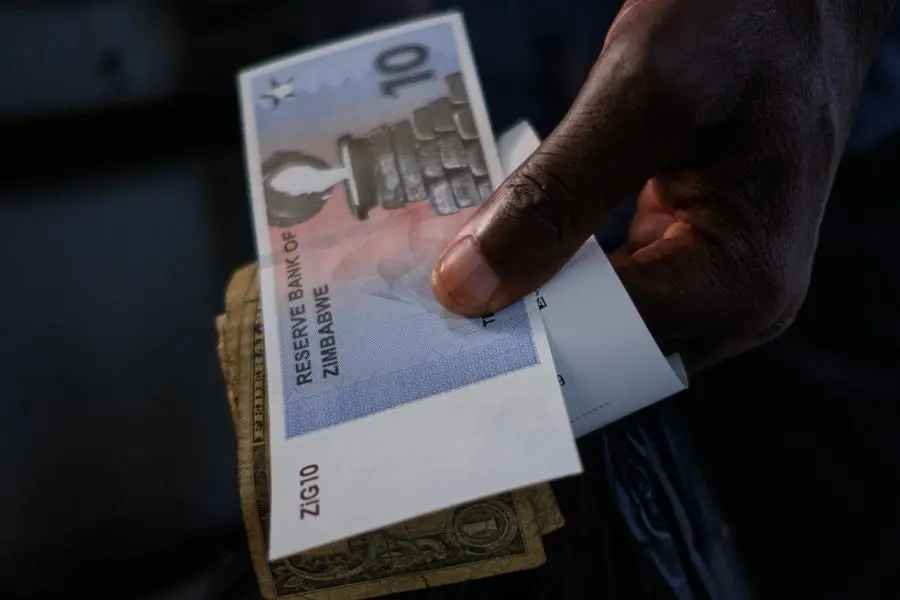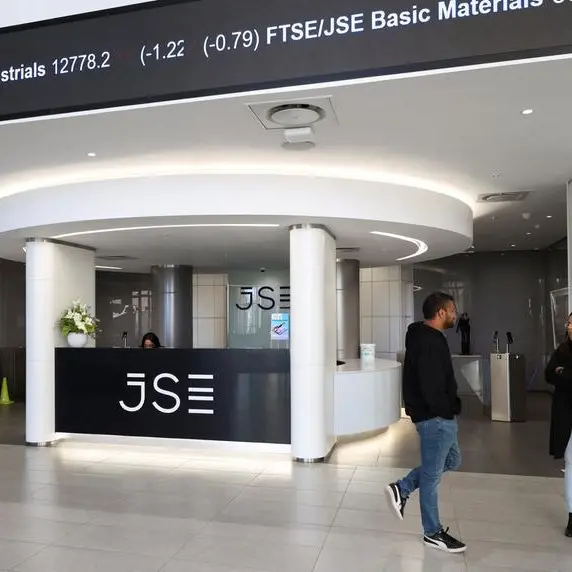PHOTO
Zimbabwe’s debt stock rose by 1.7 percent in less than a year, amid indications that talks with multilateral lenders to ease the crisis are faltering due to a lack of reforms by President Emmerson Mnangagwa’s government.
According to the latest government statistics, Zimbabwe’s debt has reached $18 billion, from $17.7 billion indicated in the 2023 Public Debt Report released in September 2023.
The release of the new figures, which have raised alarm among debt justice advocates, came at a time when authorities say the total stock of public and publicly guaranteed debt is set to increase significantly as it undergoes validation and reconciliation.
There are indications that the additions will include $1.9 billion used for to recapitalise the country’s sovereign wealth fund and $1.2 billion from the central bank.
The Zimbabwe Coalition on Debt and Development (Zimcodd), a network of socio-economic justice advocates, said the country’s debt crisis has been worsened by the opaque nature of its foreign borrowing.“Official debt statistics are often not transparently reported, as the Treasury has reportedly shared varying debt stock with creditors, providing figures between $19.2 billion and $21.9 billion,” Zimcodd said.“This lack of transparency is a significant concern, as it hampers the ability of economic agents and investors to accurately assess the state of public debt and make informed decisions -- underlining the crucial need for transparent and reliable debt reporting.”China loansMuch of Zimbabwe’s recent external debt was acquired from China, as the country is ineligible to access loans from multilateral creditors such as the World Bank and International Monetary Fund (IMF) after defaulting on repayments since the turn of the millennium.
Since the ouster of longtime president Robert Mugabe seven years ago, the country has been struggling to reach an agreement with creditors to restructure its unsustainable debt.
Former Mozambican president Joachim Chissano and African Development Bank (AfDB) president Akinwumi Adesina are leading the debt restructuring dialogue with multilateral lenders, but the talks are now face an uncertain future after the US withdrew its support, citing Harare’s reluctance to reform.
The debt defaults of the early 2000s, coupled with a shrinking economy, has resulted in prohibitive penalties and reduced the country’s ability to service its debt.
Due to its isolation by the West and its failure to pay back loans to the Paris Club, Zimbabwe has resorted to borrowing from China for infrastructure projects.
Paris Club creditorsIts biggest Paris Club creditors are Germany, France, the United Kingdom, Japan and the US, with a combined external debt stock of $2.9 billion, or 74 percent of the total Paris Club external debt.
Harare has to pay penalties to these five biggest creditors, which account for 75 percent ($1.5 billion) of total Paris Club penalties.
Zimcodd said the debt crisis threatens the stability of the country’s new currency, the Zimbabwe Gold (ZiG), and the economy as a whole.“Consequently, debt servicing costs will balloon, jeopardising government financial stability,” the network said in a commentary.“This will threaten ZiG's stability and provision of critical public services like education and healthcare as more resources must be earmarked for debt servicing.
The public and publicly guaranteed debt is already in distress as shown by ballooning arrears and penalties where about 74 percent and 85 percent of combined bilateral and multilateral debt are interest, principal arrears and penalties, respectively.“Debt unsustainability has blocked access to concessionary sources of finance to fund infrastructure developmental programmes.“It also sustains unsustainable extraction of natural resources through reliance on risky resource-backed loans.”US termsPamela Tremont, the US new ambassador to Zimbabwe, said Washington wanted to see key reforms before rejoining the debt relief talks after taking a “pause” in protest against President Mnangagwa’s disputed re-election last year.
Foreign and regional observers declared that the elections were not free and fair after the opposition was prevented from campaigning and thousands were unable to cast their ballots due to late delivery of voting materials.“We are looking forward to new democracy and governance indicators that will give us the sense of where the government is, that is its democracy and governance pathway so that we return to the table and continue these talks,” Ms Tremont said.“We were an active participant in those talks, but we have to put a pause on that after the elections that we did not find free and fair.“We think the AfDB process is really useful to discuss the reforms that the international financial institutions need for Zimbabwe to access the concessionary loans it wants.”Calls for reformsIn its latest update on Zimbabwe’s arrears clearance programme, the AfDB said the country must deal more robustly with corruption and prioritise re-engagement with the international community.“Arrears clearance and sustainable debt management are critical for macroeconomic stabilisation and fiscal consolidation while combating corruption and strengthened oversight prerequisites prudent use of public resources and re-engagement with the international community,” the AfDB said.“Government is urged to remain on track in implementing economic and governance reforms.“ZACC (Zimbabwe Anti-Corruption Commission) needs to speed up implementation of its activities.“The overarching development objective of the project is to support the arrears clearance process, sustainable management of debt and enhance public oversight, thereby contributing to macroeconomic stability and fiscal consolidation.”Early this year, China said it had cancelled an unspecified amount of Zimbabwe’s interest-free loans.
August 2022, Beijing announced that it was forgiving 23 interest-free loans for 17 unnamed African countries in a move analysts at the time said was meant to counter accusations that China was using “debt-trap diplomacy.”Critics accuse China of lending to countries that it knows cannot repay the money so that it can increase its political leverage as it tries to counter the US influence in Africa.
Mineral resourcesZimbabwe, in particular, has been receiving billions in Chinese loans for infrastructure and energy projects while mortgaging its vast mineral resources.
Zimcodd has argued that “predatory creditors” are taking “advantage of Zimbabwe’s debt crisis by fuelling debt expansion through mortgaging of natural resources and mineral revenues.”Read: China is back in Africa and doubling down on mineralsLast year, Zimbabwe secured a $400 million loan from Afreximbank for budget support and financing of trade-related infrastructure, which it will repay by using 38 percent of export proceeds from the country’s biggest platinum miner.
The previous year, the government revealed that the country had borrowed $200 million from China and secured the loan with 26 million ounces of platinum reserves.
© Copyright 2022 Nation Media Group. All Rights Reserved. Provided by SyndiGate Media Inc. (Syndigate.info).





















